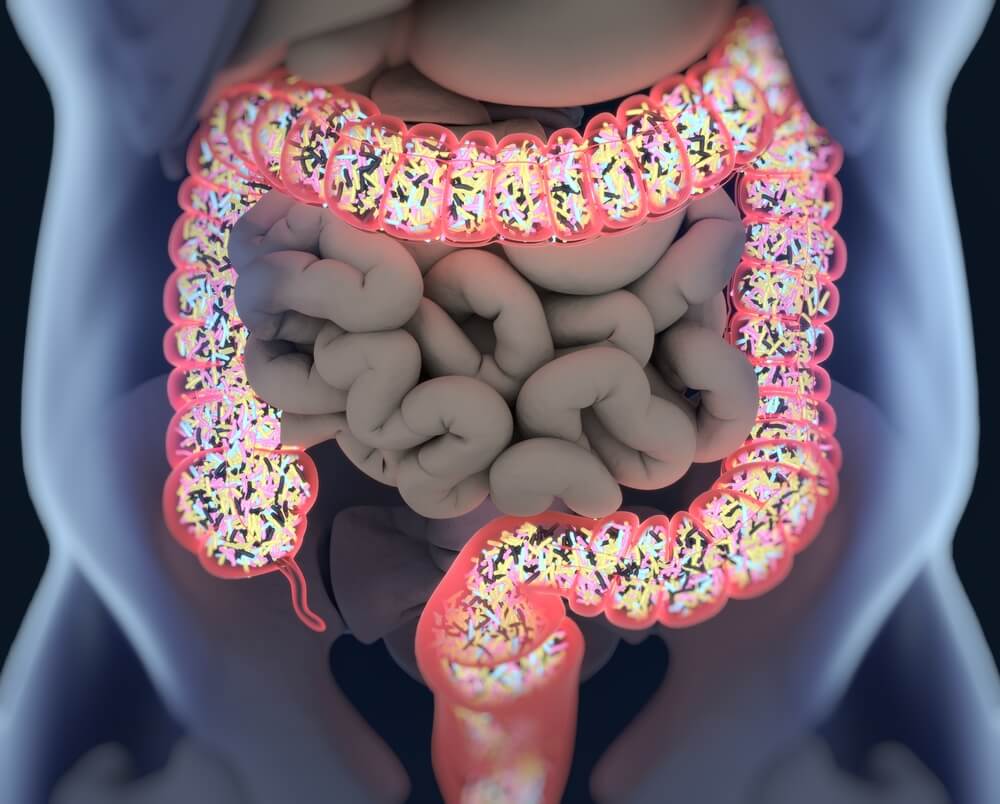Wouldn’t it just be great if you could just go to the bathroom and bam, you’re down 20 pounds? Sure, pretty much everyone has had that experience where you use the restroom and, upon exiting, you feel 20 pounds lighter, but there’s a difference between just forcing out the natural waste and actually dropping real pounds.
Laxatives For Weight Loss Is Something That Has Floated Around A Bit.
You may even have hard some celebrities talk about laxatives before award shows to trim themselves up for that perfect fit dress. Before you dive right ahead, just remember most celebrities have done some pretty crazy (and dumb) weight loss practices (we’re looking at you Beyonce and that Lemonade “cleanse”…and yes, we did just call out Beyonce for that one, because it’s totally unsafe and dangerous).
So don’t drop everything and go running to the store for a box of fast-acting laxatives.
Here’s all you need to know, about it and if it really is something you should consider.
What is a Laxative?
Yes, you know what it does. It gives you the runs faster than Usain Bolt sprinting to a finish line.
But other than making you poop, what does it actually do to your body?
As WebMD (2018) points out, it is a chemical compound designed to improve stool motility. Specifically, it is there for people who suffer from constipation. Constipation generally affects people who do not eat a healthy diet. It is full of heavy carbs, fats, processed foods and very little fiber. This person also likely does not drink enough water as well.
Laxatives come in varying forms, ranging from pills to liquids, powders and, in some extreme cases, suppository form for when someone is really blocked up (sometimes going at the dam in two different directions will finally help it burst, if you know what we mean).
For minor to moderate cases, a doctor may prescribe additional fiber.
Fiber clings to food particles such as carbs and helps the carbs pass without being absorbed into the body. It also does this with fats as well. It is why, if you’ve ever seen a food object that says “net carbs” on the labeling, it is actually taking the total number of carbs and subtracting the grams of fiber from it, as this is, generally (although it can vary) the number of carbs your body will process. Fiber will also increase the amount of water in a stool, which helps clean out the colon.
For more serious blockages, lubricant laxatives may be prescribed.
These are often part mineral oil that is designed to prevent a stool from drying out. When a person is not eating enough fiber and focuses mostly on processed foods, the blockages will begin to dry out, which makes it difficult to pass (and painful).
However, if a person is on prescription medication they should avoid this kind of laxative as the mineral oil will absorb certain items within the stomach, including medication.
Other laxatives include stool softeners (emollient laxatives), osmotic and hyperosmolar laxatives (which uses liquids to make a stool softer) and several others that change the consistency of the stool by increasing water amount into the stomach.
Different variations of laxatives are used based on a person’s individual blockage problems.
The primary use of laxatives has always been to free up a blocked bowel and not for weight loss (WebMD, 2018).
Do You Actually Lose Weight With Laxatives?
Naturally, if you’re here you’re not looking for laxatives in order to clear up your blocked digestive system. You’re here to see if you can drop some weight with the help of laxatives. Here’s the thing: yes and no.
So yes, you can drop a bit of weight with the help of laxatives.
However, it’s not long-term weight.
The weight you’ll drop is mostly water weight.
Now, if you don’t eat the healthiest of diets you may push out some debris that has been stuck in your digestive system for a while. All that is fine and all.
However, if you don’t change your diet all of the debris will return.
Additionally, the water weight will return as well.
The best way to keep your water weight down and avoid bloating is to drink lots of water throughout the day and avoid sodium. By doing this you won’t retain water and, with the continued intake of water, your body won’t need to hold onto what it has as it becomes accustomed to always having new water coming in. So the short answer is yes, you will lose weight, but no, you won’t actually drop fatty tissue weight.
So the only reason at all to use laxatives for “weight loss” is if you’re trying to make weight-in for a boxing match or if you’ve discovered you’re a bit too big for that tailored dress you purchased for your friend’s wedding and you need to quickly drop a bit of stomach mass to squeeze in.
Other than that, there’s not much of a reason to use laxatives.
Yes, it Can Become Dangerous
When taking a laxative strictly for weight loss and there isn’t anything in the stomach, it begins flushing out important material from the body. When there isn’t anything left in the body to push out, electrolytes and important vitamins and minerals are drawn out of the body. These are important vitamins and minerals the rest of the body needs. When electrolytes are imbalanced it can cause a number of far more serious side effects.
For starters, the loss of valuable materials within the body will result in muscle deterioration. The muscles do not have the necessary water and energy to sustain, which in turn results in muscles breaking down. This can also lead to dangerous proteins infecting the blood.
Once the blood is infected the dangerous protein is delivered to the rest of the body. It’s best to think of it like a virus in a tree where the tree begins to show black spots on the leafs.
Eventually, this spreads throughout the tree before infecting other trees. The same is true with the dangerous protein. It begins with the muscles but then will be being to spread out throughout the rest of the body.
The stomach itself is made up of good bacteria. This is bacteria that help break down food. By using laxatives for weight loss, the good bacteria is forced out of the body. This can lead to serious stomach and digestive system problems, ranging from pancreatic damage to significant changes within the gastrointestinal configuration. The liver will see the constant bombardment of the weight loss laxative, which increases the potential for liver damage.
Likewise, the kidneys are forced to work overtime, which increases the chance of kidney failure.
You probably don’t want to be dealing with dialysis just because you turned to laxatives for weight loss one too many times. That doesn’t really seem like a desirable way to go about cutting down on what the scale says.
I Used a Laxative. When Should I Contact the Doctor?
Perhaps you decided to take laxatives before an event.
You felt a little bloated and you wanted to flush that water weight out.
For starters, we want to make sure you know these are usually different from a cleanse.
A cleanse usually consists of drinking one beverage for several days. While not always the safest, it doesn’t have chemicals packed in that flush out everything in the system, so if you do need that last minute water weight drop before an event, look to something that doesn’t include chemicals. However, if you did drop the laxative, there are specific times where you need to seek out medical attention as it might mean something far more serious is going on.
First, if you notice any kind of blood in your stool or if your anus is bleeding, you need to contact a doctor. Blood and bowels are two things you never want to see combined. If you experience serious cramps (some cramping is common, especially if you are adding more fiber to your system the body will cramp a bit because it is not accustomed to it) you need to call your doctor.
Mild cramping keeps an eye on but if it goes away you don’t need to call your primary medical practitioner.
If you experience any kind of dizziness there are a few different reasons behind this.
You might be dehydrated, or your body may be trying to make up for the sudden loss of essential minerals aid vitamins (Mayo Clinic 2018).
The Different Laxatives And The Different Side Effects
As we mentioned a bit earlier, there are different kinds of laxatives available.
These different laxatives come with different possible side effects. An oral osmotic (such as Milk of Magnesia) may cause bloating, diarrhea, gas, cramping and you’ll feel thirsty. An oral bulk former (Benefiber or FiberCon) may result in cramping, gas and bloating.
An oral stool softener can result in an electrolyte imbalance (meaning this is not something you want to take if you’re looking for the last minute water weight drop).
Oral stimulants may result in cramping, diarrhea, odd colored urine and burping. Lastly, a rectal suppository can lead to cramping, diarrhea and rectal irritation (Mayo Clinic, 2018).
Alternatives to Laxatives
You really don’t need to take a laxative for weight loss.
There are many other ways you can keep water weight down and your digestive system flowing like nobody’s business (because it really is nobody else’s business other than you and your doctor). For starters, you want to drink water. You should be consuming at least eight servings of eight-ounce glasses of water a day. This is the minimum. An easy way to do this is to pick up a 32-ounce water jug and keep it with you throughout the day. Polish it off twice a day and you’re at your minimum.
Also, avoid carbonated beverages (yes, including diet) and don’t drink beverages with sugar in it (such as juice or the frappuccino calorie bombs).
Stick with water, tea (such as green or black unsweetened tea) and black coffee.
Beyond beverages, eat fiber-rich foods. Vegetables are packed with fiber and should be included in every meal. Fiber is also found in 100% whole wheat products, fruits and a handful of other natural items. With your diet avoid processed foods and deep-fried foods.
These greases and saturated fats are difficult for your body to digest and will begin to cling to the digestive system.
This increases the chance of suffering from constipation while also weighing you down with straggling digestive particles clinging to your intestines. You’ll also want to exercise on a regular basis. This helps keep everything flowing correctly. It pushes out sodium naturally, which helps prevent water retention (as long as you’re drinking at least the minimum water amount every day).
Exercise also keeps your digestive system running smoothly, which will prevent the need for laxatives in the first place (Medical News Today, 2017).
Conclusion
You’ve probably heard people talk about using laxatives to drop last minute weight. They may even brag about how they lost five pounds by sitting on the can for a day.
And yes, there’s a good chance they really did drop five pounds using the laxatives.
However, this is not safe at all. It pushes out important vitamins, minerals, and electrolytes out of the body, all of which your system needs. Beyond this, the weight loss while using a laxative will all be gained back quickly without a change in diet.
So not only will you not net lose any weight, but you’re putting your body at potential risk every single time you use a laxative (especially if one is not medically required to clear out a blockage).
So avoid using laxatives whenever possible, drink your 64 ounces (minimum) of water every day, eat a fiber-rich, healthy diet, and exercise on a regular basis.
-Terry Asher
Terry Asher
Latest posts by Terry Asher (see all)
- Better Family – Product Review Liquid Daily 2 oz - Dec 16, 2024
- Post-Workout Recovery: The Key to Optimal Performance - Nov 25, 2024
- Pre-Workout Supplements – Everything You Need To Know - Nov 18, 2024














[…] post Laxatives For Weight Loss – Whats The truth? appeared first on Gym […]
[…] via- https://gymjunkies.com/laxatives-for-weight-loss/ […]
[…] post Laxatives For Weight Loss – Whats The truth? appeared first on Gym […]
“IT’S NOT OUR ABILITIES THAT DEFINE US. IT’S OUR CHOICES”.
[…] if you know anyone who has taken specific fat blockers, they may have told you they had to take poops all the time, and when they did it came out in a weird consistency (often […]
[…] anybody who has taken particular fats blockers, they might have informed you they needed to take poops on a regular basis, and once they did it got here out in a bizarre consistency (usually […]
[…] Vera juice is a great juicing recipe for weight loss because it helps aid digestion through its laxative properties, combats water retention, boots metabolism, and helps detoxify the […]